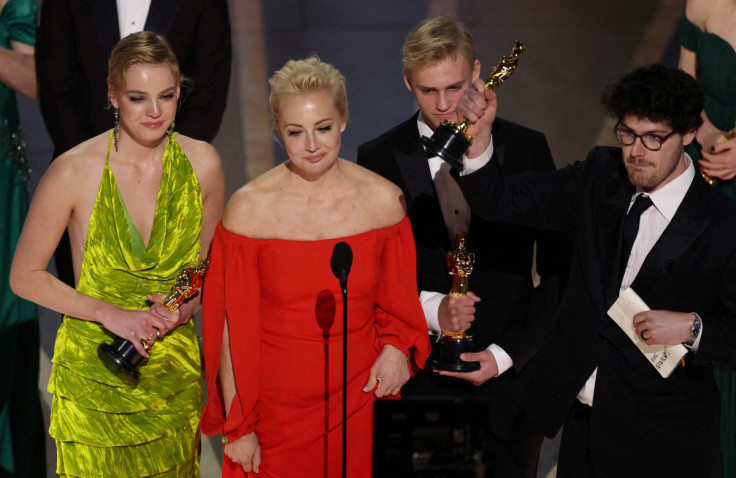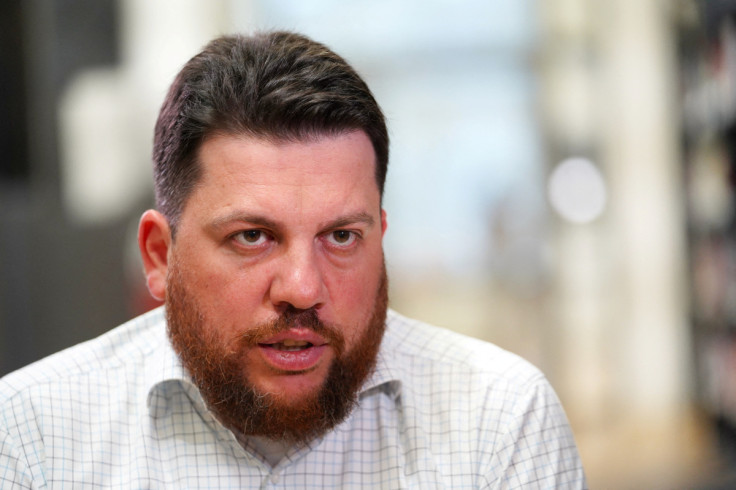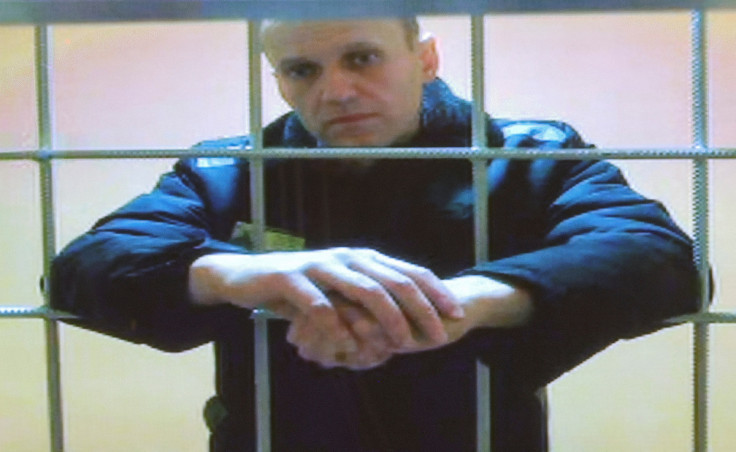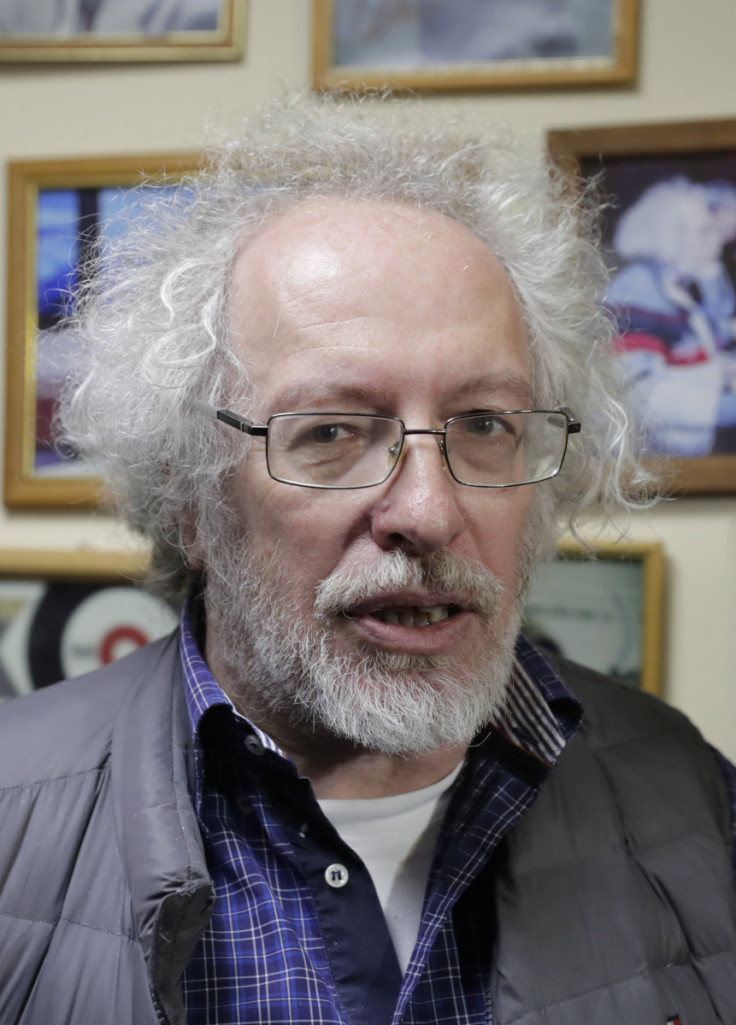Russia's Oscar-winning Opposition Is Mired In Conflict

Kremlin critics were cheered this week when a Western documentary about jailed opposition politician Alexei Navalny won an Oscar, but his political movement is in turmoil and some Ukrainian politicians say the award is undeserved.
Navalny, President Vladimir Putin's most high-profile domestic critic, is serving 11-1/2 years in jail in Russia after being convicted of fraud in two cases he and the West say were trumped up to silence him, and his anti-corruption organisation has been banned as extremist.
His supporters cast him as a Russian version of Nelson Mandela who survived an assassination attempt and will one day be freed from unjust imprisonment to lead Russia. The lawyer-turned-activist remains a fierce Kremlin critic, releasing regular statements via his lawyers from behind bars.
But his Anti-Corruption Foundation (ACF), which now operates outside Russia, is reeling after his Chief of Staff Leonid Volkov admitted he had - without his colleagues' knowledge - lobbied the European Union to lift sanctions on Mikhail Fridman, one of Russia's richest men.
Volkov apologised for what he said was "a big political mistake" and said he was taking a break from his role as chairman of the ACF.
Yet some fellow opposition members were furious, saying the ACF should be trying to hasten Putin's political demise rather than helping wealthy businessmen.
Vladimir Milov, a Navalny ally and a former deputy energy minister, said some in the opposition had shown themselves to be "super-naive" in seeking the lifting of sanctions on Fridman, whom he described as Russia's "champion corporate raider".
"It inflicts colossal damage on the image of the Russian opposition," said Milov. "After this it will be necessary to restore the reputation of the Russian opposition in the West."
TIT FOR TAT
The lobbying effort was made public in apparent revenge by Alexei Venediktov, a prominent journalist who for years gave the opposition a platform on the Moscow radio station he ran while maintaining ties with the authorities.
Navalny's team had accused Venediktov of taking millions of dollars from the Moscow city budget, which is controlled by a Putin ally, to publish magazines. Venediktov admitted winning a publishing contract, but denied wrongdoing or making a profit. Both he and Volkov were designated "foreign agents" by Moscow in April 2022.
Leonid Nevzlin, a tycoon and prominent Israel-based Kremlin critic, said on Twitter that the opposition needed to unite.
"While Ukraine is fighting for its freedom, the Russian oppositionists have decided to open a second front... Unfortunately, not to fight Putin, but to fight among themselves," he lamented.
Ksenia Thorstrom, an opposition politician from St Petersburg who has now left Russia, said she too craved unity. "But unfortunately exactly the opposite is happening at the moment," she said in a phone interview.
SANDWICHES
The Oscar award also focused attention on Navalny's stance on Crimea, the Black Sea peninsula which Russia annexed from Ukraine in 2014. That year, he said he did not think Crimea was a sandwich that could be passed back and forth.
Navalny had long said he would hold an honest referendum in Crimea on which country its residents wanted to be part of if he became president. Last month, however, he changed tack and said Russia must respect Ukraine's 1991 borders.
Some Ukrainians were unconvinced and shocked that the documentary about him won the Oscar rather than a Ukrainian contender, a co-production called "House of Splinters" - which tells the story of an orphanage destroyed by Russian forces.
"Tonight proved once again that Russian propaganda works very well and knows how to promote pseudo-heroes where there are no heroes," Azad Safarov, who helped make the Ukrainian co-production, said on Facebook.
Andriy Sadovyi, the Mayor of the Ukrainian city of Lviv, recalled Navalny's Crimea sandwich comments with distaste.
"Navalny is a sandwich packed in a lunch box carried around the world as an example of the fact that there is still opposition in Russia," Sadovyi wrote on Twitter, adding that it smelled of Russian propaganda and now of the Oscar statuette.
Maria Snegovaya, senior fellow at the Center for Strategic and International Studies, said the opposition in exile's messaging on the Ukraine war was hobbled by fear of alienating supporters in Russia, where anti-war feeling is not widespread.
"It's been a year, and yet the Russian opposition in exile remains even more disunited and the infighting continues," she said in a phone interview.
Nikita Yuferev, a Russian opposition municipal deputy now living abroad, acknowledged disarray among Putin's opponents but blamed a 20-year Kremlin crackdown. "Now the Russian opposition is indeed in a fragmented state - it's headless, it's disoriented, but there are objective reasons for that."
Navalny ally Milov said it would persevere.
"Problems and mistakes happen but we managed to survive the terrible blow that Putin has been inflicting on us these last few years," Milov said on YouTube.
"We're not about to give up."
(Writing by Andrew Osborn; editing by Philippa Fletcher)



© Copyright Thomson Reuters 2024. All rights reserved.





















